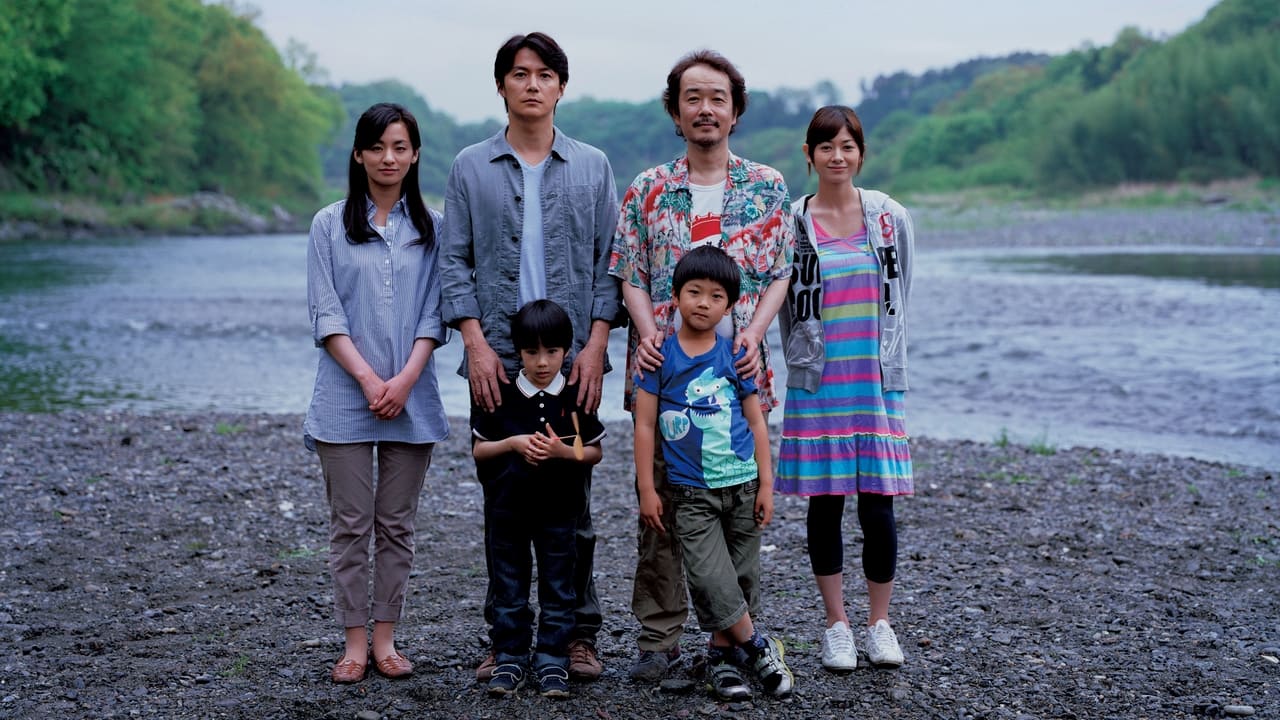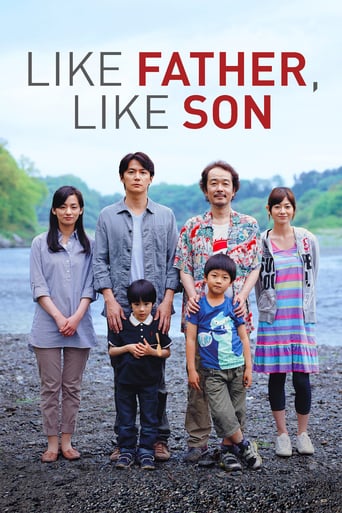

A brilliant film that helped define a genre
... View MoreExcellent characters with emotional depth. My wife, daughter and granddaughter all enjoyed it...and me, too! Very good movie! You won't be disappointed.
... View MoreGreat story, amazing characters, superb action, enthralling cinematography. Yes, this is something I am glad I spent money on.
... View MoreOne of those movie experiences that is so good it makes you realize you've been grading everything else on a curve.
... View MoreViewed on Streaming. Subtitles/translations = ten (10) stars. Director Hirokazu Koreeda (who is also credited as the sole screen writer and editor) treads much too lightly on a tale filled with dramatic possibilities. Perhaps the Director feared his story could easy degenerate into an overly melodramatic morass, since he frequently steers his film in the opposite direction resulting in trivia and wooden acting. The plot involves the revelation (after the criminal statue of limitations has expired) that male babies were deliberately switched immediately after birth. This apparently is not unusual at the local hospital that lacks basic controls to prevent these crimes. However, it does employ a lawyer who seems to specialize in such matters. The photo play deals with the discovery of, family reactions to, and "final" remediation of the issue. (Maintaining the status Quo (and minimizing the trauma) via quick reciprocal adoptions would seem like a straight-forward approach, but it is never seriously perused. Perhaps this is because it would abruptly end the story and turn the movie into a short subject!) Impact of vastly different family socioeconomic conditions (one with a rising-Salaryman-star father; the other with a small-shopkeeper father) becomes a major plot point often eclipsing the baby-switching factor (a more accurate movie title might be: "Like Family (Fortunes), Like Son"!). Koreeda seems to have focused his energy on directing his child actors (understandably, as they are usually a major challenge), and, in the process, neglected the performances of his adult actors. Further, those playing the parents in the Salaryman family are miscast. The "score" mostly consists of fragmented piano playing (the Salaryman's "son" is learning to play this instrument) which is overly done. But not completely to the point of boring irritation. Subtitles are excellent with opening and closing credits completely translated. All closing credits can be viewed just in English! An extreme rarity in Japanese films. Doumoarigatou Goziamashita! Worth watching, but don't expect too much. WILLIAM FLANIGAN, PhD.
... View MoreThe pacing was masterful. The camera knew just how long to hold a shot, and was never in a rush to cut. Yet, so much seemed to be happening. Time seemed to slow, but the storytelling had a brisk rhythm.The characters had personality and depth. The movie never strayed too far from the theme of family, making each important moment all the more impactful.There were three massive payoffs, one in each third of the movie. You are awarded for you patience in spades.## SpoilersThe first payoff comes in the form of light and timing, when shadow falls over the train right when the mother is talking about the father.When they're camping by the river and Keita asks his father, "Do they love me?... More than you?" And he answers with what he believes to be brutal honesty.And when the father discovers the photos his son took of him on the camera.Bonus payout: when the nurse's adolescent son defends her.These scenes made me weep.
... View MoreWhile I liked some moving and sweet moments, being a father myself, I didn't like too much this movie for a few reasons.The first it's that the "bad" father looks like a little plausible one, brought to force the film to be a moving one and to accentuate the conflict.The second, even more important, is that the reason of the main issue, as is as it was shown, looks very improbable.Anyway, there is not need of a great culture or intelligence to understand that the sons are own by whoever grown them. The blood issue is secondary in such cases. Sure the movie lets you think for a moment about natural son versus adopted one, but the choice, in this particular case, however hard, it is naturally obligated. Both the sons were not babies anymore. Too late. The easiest solution should be, of course and obviously, the one it was going to be at the end of the movie. An hard but simple solution that every movie character understood from the start, but, casually, not the "bad" father.The film is somehow sweet, thanks to the children, and it shows a rare dilemma that could be hard to digest, but that's it all. There is not much more in here, apart how important is for a son to be supported and spend time with his father, whoever he is. Who didn't know this yet?7/10
... View MoreSo it's a foreign movie - fine, not everybody gets it. It confronts the viewer with a different set of social codes - precisely Japanese, a softer way of doing things which is light-years away from what we're used to in the Western world. This said, you actually need only one thing to fully appreciate this story : that is to be a parent. And this time (which is rare), the subject focuses on fatherhood instead of the ever-scrutinized motherhood. If you're a modern father, having outgrown the prototypical figure of the mid-to-late 20th century and being at peace with your so-called "feminine side", you will find it at least puzzling, if not disturbing to put yourself in the main character's shoes. Finding out your biological son has been swapped for another at birth is a shocking thought - and a not easily-resolved dilemma. And just for that - even though this is not necessarily a masterpiece offering -, this gentle, humane piece of work is worth seeing and ponder upon. A kind warning: do not follow up right away with a viewing of Thomas Vinterberg's "The Hunt", another fatherhood-themed movie, unless you're ready for a bad case of the blues...
... View More